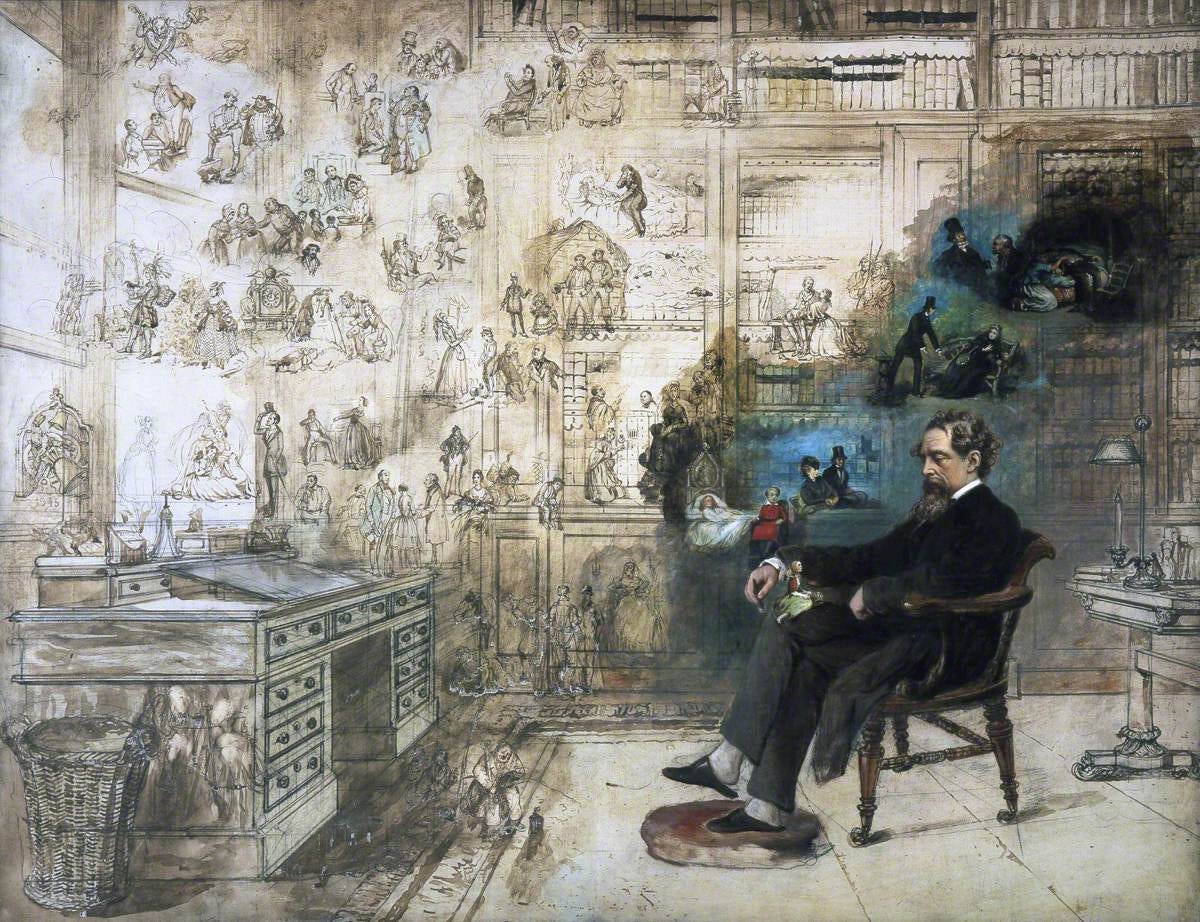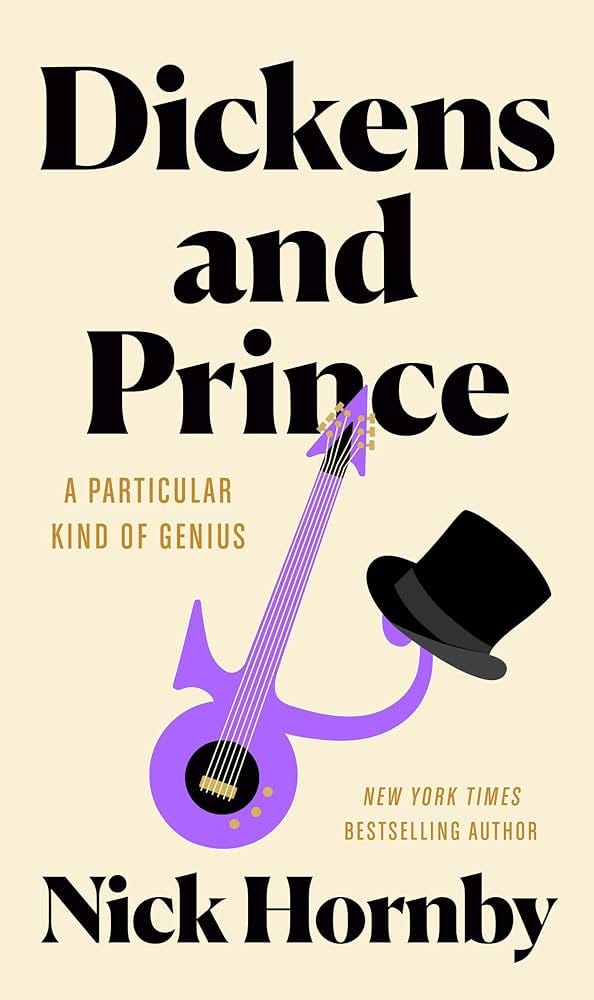What to Read Next: The Secrets of Prolific Geniuses
Issue #360, featuring Stephen King, Charles Dickens, and Prince
Happy 2025, readers!
As we enter into another year, I imagine many of you are thinking about production, in some way or another. How to make more, create more, and do more.
I’ve been a writer and editor for nearly my entire working career and I’ve read dozens of writing books as well as numerous biographies of famed writers. In the past, I would read these books with my own notebook in hand, trying to parse out the routines, habits, and disciplines that fueled their accomplishments. My goal was then to re-create those routines . . . and then wait for my own rocketship to success.
Though I have generally found success in my career, it’s in no way related to copying the secrets of other writers. Two books I’ve recently read have solidified this fact for me, albeit in ways that are more likely related to life experience rather than their content. And yet, that’s part of the beautiful power of books — they meet us where we are and speak to us in the ways that we need.
There Is No Formula
Surely you’ve heard this before if you’ve read much about work and creativity and art: there is no formula to success. There’s not a routine that you can follow that will lead you to the promised land. The work you do has to come from an overwhelming desire to do that work. (Notice the particular “D” word here: desire rather than discipline is the key.)
Three artists who had that desire: Charles Dickens. Prince. Stephen King.
These are very different men who happen to share a remarkable number of similarities. In Dickens and Prince, novelist/producer Nick Hornby shares his observations on two men who died in their late fifties after lifetimes of prodigious output. In On Writing, Stephen King — one of my favorite living authors — walks readers through his own workman-like writing philosophy.
Both of these excellent books make a point about putting in the time and doing the work. Hornby writes:
“What matters to me is that Prince and Dickens tell me, every day, Not good enough. Not quick enough. Not enough. More, more, more. Think quicker, be more ambitious, be more imaginative. And whatever you do for a living, that's something you need to hear, every now and again.”
While I appreciate Hornby’s insights on these artists, I don’t think I agree with his conclusion. Yes, Dickens and Prince (and King) pushed themselves very hard, but my own reading between the lines told me something a little different: Every prolific artist produces huge amounts of work because it oozes out of them; even when it’s hard, these people have a natural proclivity that allows them to create with high intensity and volume.
There is not enough discipline in the world to get someone to do something that goes against their inclinations. For artists and creators, there’s an indefinable something that pushes them to sweat and do the work — it’s genuinely easier for them to create than to not create.
Do What You Naturally Find Live-Giving
I’ve always found authors and writers to just be cool. I’ve wanted to be like them for my entire adult life. Naturally, then, I’ve tried to imitate my favorites. Write what they’re writing, read what they’re reading, follow their practices to a tee. This even happens with my favorite writers here on Substack.
But that approach has always led to fits and starts and guilt rather than lasting success, or, more importantly, fulfillment.
You know the one thing that’s led to my writing about books for over 350 weeks? I love to read books, and I feel a natural push to tell people about those books via this newsletter. That’s it. I’ve felt this way for years and years and have had some sort of book blog for my entire reading life.
Contrary to what most of you probably think, it doesn’t take hardly any discipline for me to read 100+ books a year and share them with you on a weekly basis. These things feel remarkably life-giving for me — reading and writing have thus become ingrained habits that would be harder to not do than to continue doing until the end of my time.
The lesson, then, has crystallized: Do what you love to do. Period. Do the things that feel most satisfying and life-giving. Sometimes that thing will be economically viable as a career, but many times it won’t. Relying on discipline to do something creative may work in the short-term, but never over the long haul.
You will hear contrary advice, even from the masters. Stephen King himself writes:
“If you don’t want to work your ass off, you have no business trying to write well.”
This is true, in a sense, but what’s not said here is that it’s much easier for King to do this than most people. He is inclined to write stories in a way that 99.9% of people are not. Of course the work will be hard, perhaps even most of the time. But it won’t be an excruciating type of work — it will be rewarding and you’ll even get into a flow state at times. If not, you’re probably doing the wrong thing.
A Lesson for Right Now
For anyone with a bit of creativity in them that they’d like to keep exploring — hint hint, everyone is creative in some unique way — Dickens and Prince and On Writing offer timeless treasures to think about and explore. Hornby’s 2022 title is incredibly concise and doesn’t provide specific ideas about creativity and art; it’s more of an exploration of personality and even vibes. King’s memoir, on the other hand, does actually provide quite a bit of specific writing advice alongside bits of his life story and some general philosophy on the practice of writing.
Both books are excellent and will stay with me for a long time. I first read On Writing a few years ago and have pulled it off my shelf a few times since to find some inspiration or advice — and have yet to come away wanting.
They may speak to you in different ways but for me, this time around, the lesson was to lean in to what I love and what comes naturally.
Cheers to 2025!
Thanks for reading and be good to each other.
-Jeremy




This was great, Jeremy! Wishing you and everyone a fantastic and productive 2025, and that everyone finds that thing they love to do. Cheers!
I really loved this article. It explains exactly how I have been attached to books as long as I can remember. Stephen King held me together through my darkest times. He became a strange surrogate dad. I'd frankly read his laundry list. He has 2 very gifted sons who are brilliant in their own right. Joe Hill has written several books and short stories and Owen King who also writes but has his own style and offbeat brand of weird. Thank you, King family writers ❤️ you saved my life literally in a very dark time.